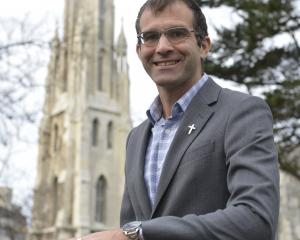
Awareness of the contribution that spirituality can make to health has come a long way.
Aotearoa’s healthcare system adopts a holistic approach, often encapsulated in the Māori model of health, te whare tapa whā, and its four interwoven dimensions: physical, mental, family/social and spiritual. The spiritual aspect (taha wairua) is not just an optional extra. It is woven into everything else.
Having a model is one thing. Having policies and delivery plans is another.
A 2022 study by Jacqui Tuffnell revealed that the New Zealand healthcare system’s spiritual care delivery was fragmented.
She noted a huge variation in the provision of spiritual care across the country.
Of the 20 former district health boards, eight had no spiritual care policy in place.
For over 50 years, the Interchurch Council for Hospital Chaplaincy (ICHC) has been doing a great job providing hospital chaplains, but they operate in a policy vacuum and a rapidly changing context.
A major bicultural research project led by Associate Profs Richard Egan and Waikaremoana Waitoki has just been launched to examine how spiritual care can be improved across the healthcare sector.
The importance of their mahi is confirmed by a Royal Australian and New Zealand College of Psychiatrists (RANZCP) position statement on the relevance of religion and spirituality to psychiatric practice.
It says that religion/spirituality is crucial to achieving a more holistic understanding of a person’s needs and supports.
A notable feature of the RANZCP statement is the link that is assumed between spirituality and religion.
It defines religion as an institutional form of spirituality, consisting of the systems and practices of a community in relation to a divine or eternal guiding presence.
This begs a question: if spirituality is regarded as a contributor to health, might the same be said of religion? Or to put it more bluntly, is religion good for one’s health?
The link between religious observance and mental health benefits has been demonstrated in numerous academic studies.
These include a sense of meaning and purpose, enhanced social support, effective coping mechanisms and stress reduction. In times of suffering, belief in a higher power can provide comfort and hope.
But care needs to be taken not to overstate the benefits. Religion can also be harmful.
Belief in faith-based healing can lead to a distrust of science, a rejection of conventional medicine, delays in seeking medical care and a refusal of life-saving treatments.
It can also trigger a crisis in faith when divine intervention does not materialise.
Moreover, doctrinal beliefs about divinely ordained conduct may induce feelings of shame in regard to one’s sexuality and lifestyle choices, potentially leading to secrecy, risky behaviour and mental health struggles.
Other beliefs about heaven and hell may generate anxiety about being judged and found wanting.
In a paper on religion and spirituality in healthcare, a British mental health chaplain, Ruth Bierbaum, says it is important to understand that there are different ways of being religious.
Bierbaum uses the term "quest religiosity" to describe a healthy form of religion that integrates the whole of life, accommodates questions and doubt and allows re-evaluation in the light of experience.
It is faith seeking understanding, not faith locked in a rigid system of belief; faith that engages with evidence-based research in all fields of inquiry, not faith stuck inside an echo chamber; faith driven by curiosity, not blind obedience.
Quest religiosity may involve a revision of beliefs and searching questions, such as, "if God is good and all-powerful, why does God allow suffering? Am I being punished for my sins? Is my suffering a test of faith?"
A role of healthcare chaplains is to help people navigate existential questions and guide them to what Bierbaum calls "transitional spaces", where questioning and reflection are encouraged and images of God and self may be reimagined, opening up the possibility for spiritual growth and strengthening of mental health.
Renowned New Zealand author Joy Cowley likens spirituality to a journey and religion to a map for the journey.
We receive maps that those who have gone before us have drawn, and as we journey, we make the maps our own.
Some markings are as helpful to us as they were to our forebears, but other markings have become obsolete, and some new and unmarked trails lead to exciting new vistas. We put down new markings.
This is a useful metaphor for quest religiosity. Religion is not static. It is an ever-changing map.
For those who experience it as such, it plays a positive role in their health. Their experience is worthy of respect.
■Graham Redding is the lecturer in chaplaincy studies at Otago University and minister at Knox Church, Dunedin.












